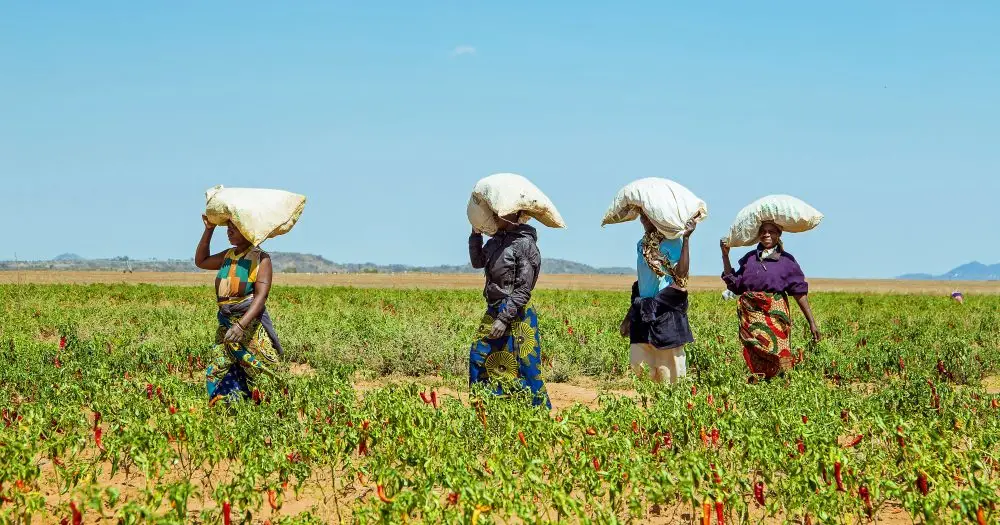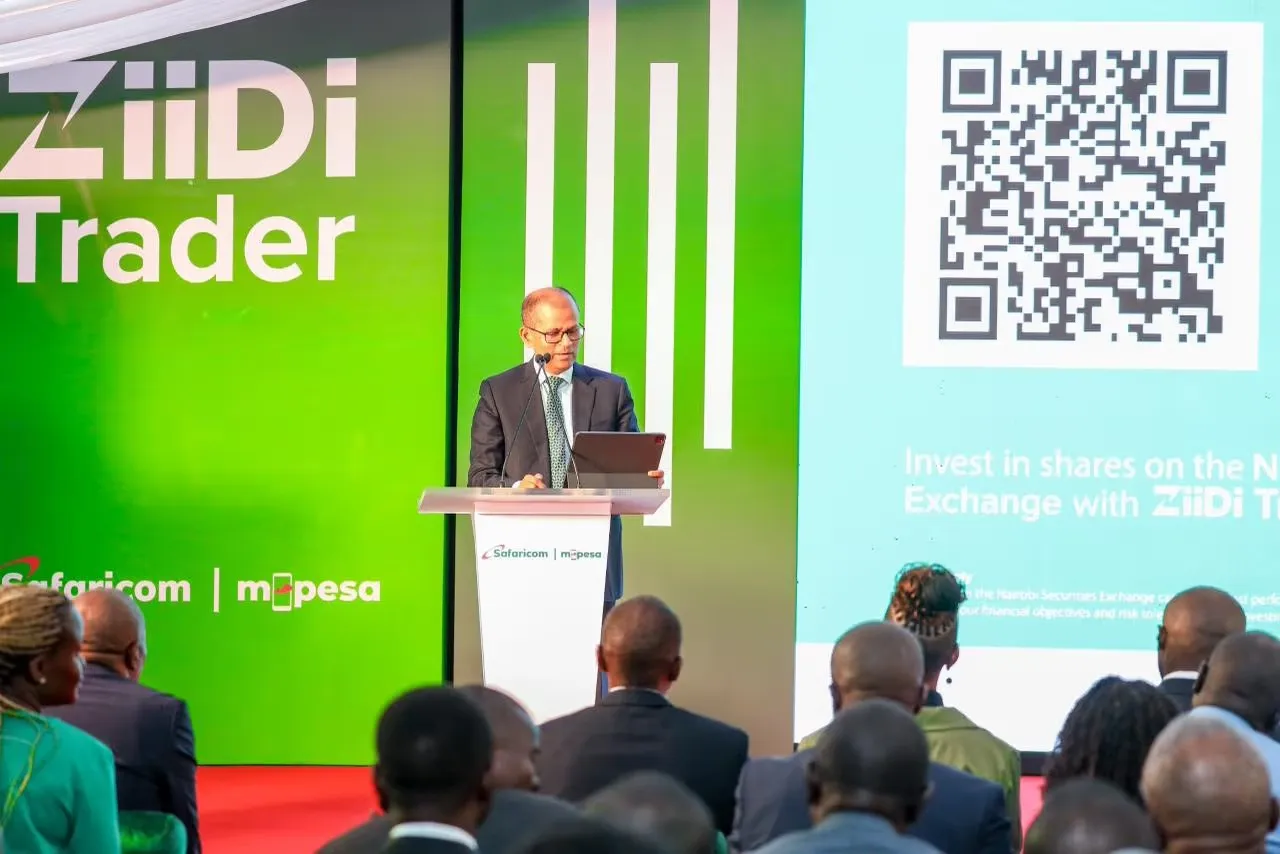In a major boost to Africa’s agribusiness sector, British International Investment (BII), alongside Swedfund and Norfund, has announced a joint investment of $85 million in AgDevCo. This latest injection of capital is designed to support small and medium-sized agribusinesses across sub-Saharan Africa, enabling them to increase productivity, expand food systems, and build greater resilience in the face of climate change and market volatility.
The breakdown of the investment is as follows: BII will contribute up to $50 million, Swedfund $20 million, and Norfund $15 million. With BII’s follow-on commitment of up to $50 million—bringing its total investment in AgDevCo to $100 million—the institution now stands as the largest external investor in the specialist agribusiness investor. This robust financial backing underscores the growing international confidence in Africa’s agricultural potential and the transformative impact that strategic investments can have on rural economies.
Expanding Access to Finance for a Critical Sector
Agriculture remains the backbone of many sub-Saharan economies, employing a vast majority of the population and serving as a primary source of livelihood for millions of smallholder farmers. However, the sector has long been hampered by chronic underinvestment, limited access to credit, and inadequate infrastructure. AgDevCo’s model addresses these challenges head-on by providing flexible, long-term capital to businesses that might otherwise be overlooked by traditional lenders.
AgDevCo’s approach is unique in that it not only fills the financing gap but also provides strategic support across the agricultural value chain. From primary production to logistics and market access, the platform’s investments help agribusinesses adopt sustainable practices and improve efficiency. In 2023 alone, AgDevCo’s portfolio benefited over 2.4 million small-scale farmers, with 29 percent of these beneficiaries being women, while directly supporting more than 28,000 jobs. The new $85 million investment is expected to accelerate these outcomes, targeting an eventual impact that could reach four million farmers and support 60,000 jobs annually by 2030.
The Role of AgDevCo in Africa’s Agribusiness Transformation
Founded in 2009, AgDevCo has steadily evolved into a key player in African agribusiness finance. Headquartered in London, the organization specializes in investing in SMEs that are driving innovation and sustainable growth in agriculture. By working closely with local businesses, cooperatives, and governments, AgDevCo helps to overcome some of the systemic challenges that have long plagued the sector.
One of the critical aspects of AgDevCo’s investment strategy is its focus on the entire agricultural value chain. Rather than concentrating solely on production, the firm also supports post-harvest processing, storage, transportation, and market linkages. This holistic approach not only boosts productivity but also enhances food security and strengthens local economies. For instance, investments in processing facilities and improved cold-chain logistics have enabled agribusinesses to reduce post-harvest losses significantly—a vital development in regions where infrastructure is often underdeveloped.
Moreover, AgDevCo’s emphasis on sustainable practices has had a notable impact on climate resilience. More than half of its primary production investments now incorporate elements of regenerative agriculture. These practices promote soil health, enhance water retention, and support significant carbon sequestration—factors that are increasingly important as climate change poses new challenges to food production in Africa.
Addressing Urgent Challenges in Sub-Saharan Africa
Sub-Saharan Africa faces a host of complex challenges in its agricultural sector. Among the most pressing are:
- Limited Financing: Many agribusinesses struggle to secure the necessary funding to scale operations or invest in new technologies. Traditional banks are often reluctant to extend credit in regions perceived as high-risk, leaving a significant financing gap.
- Climate Vulnerabilities: The region is particularly susceptible to the impacts of climate change. Erratic weather patterns, prolonged droughts, and unexpected floods can devastate crops and undermine food security.
- Underdeveloped Value Chains: Inadequate infrastructure—ranging from poor road networks to insufficient storage facilities—hampers the efficient movement of goods from farms to markets.
- Market Access: Smallholder farmers and rural businesses frequently face challenges accessing both local and international markets, limiting their ability to scale and diversify.
AgDevCo’s investment model is designed to address these very challenges. By providing patient capital and expert support, the firm helps agribusinesses not only overcome immediate obstacles but also build the capacity for long-term, sustainable growth. This comprehensive strategy is crucial in a sector where incremental improvements in productivity and efficiency can have far-reaching impacts on economic development and poverty reduction.
A Catalyst for Change: Economic and Social Impact
The $85 million investment represents more than just a financial transaction—it is a catalyst for systemic change in African agribusiness. Each dollar invested by AgDevCo has already generated an estimated $2.50 in higher incomes for rural and peri-urban households. These returns come in the form of increased employment opportunities, improved productivity, and access to new income-generating activities such as the adoption of improved livestock practices.
Empowering Smallholder Farmers
Smallholder farmers are at the heart of Africa’s agriculture, yet they often lack the resources needed to adopt modern techniques and technologies. AgDevCo’s investments have made significant strides in bridging this gap by:
- Facilitating Access to Technology: Through partnerships and targeted investments, AgDevCo helps farmers access modern agricultural equipment and innovative farming practices that boost yields.
- Providing Training and Capacity Building: Many projects include comprehensive training programs that equip farmers with the knowledge needed to optimize production, manage resources sustainably, and adapt to changing climatic conditions.
- Enhancing Market Linkages: By improving connectivity between producers and markets, the investments ensure that farmers can secure fair prices for their produce, thereby increasing their income and overall economic stability.
Broader Socioeconomic Benefits
The impact of this investment extends beyond individual farmers. Rural communities benefit from improved infrastructure, enhanced food security, and increased employment opportunities. As agribusinesses expand and modernize, the ripple effects contribute to poverty reduction and broader economic growth. For example, improved value chains can lead to the establishment of local processing units, which in turn create jobs and stimulate demand for ancillary services such as transportation and storage.
Moreover, the investment supports gender inclusion by empowering women—who form a significant proportion of the agricultural workforce—to access credit, training, and leadership opportunities. This empowerment is critical for achieving sustainable development and ensuring that the benefits of agribusiness growth are equitably shared across communities.
Aligning with Global Sustainable Development Goals
The investment in AgDevCo is well aligned with several of the United Nations Sustainable Development Goals (SDGs), including:
- SDG 2 (Zero Hunger): By boosting agricultural productivity and expanding food systems, the investment directly contributes to efforts aimed at ending hunger and achieving food security.
- SDG 8 (Decent Work and Economic Growth): The creation of jobs and the stimulation of rural economies support inclusive and sustainable economic growth.
- SDG 13 (Climate Action): The focus on regenerative agriculture and climate resilience helps mitigate the effects of climate change, contributing to global efforts to reduce carbon emissions and enhance environmental sustainability.
These alignments not only enhance the credibility of the investment but also position AgDevCo as a leader in leveraging finance for sustainable development. The coordinated efforts of BII, Swedfund, and Norfund underscore a shared commitment among international development finance institutions (DFIs) to address both economic and environmental challenges simultaneously.
Strategic Partnerships and Government Support
Government support plays a pivotal role in the success of such transformative investments. The UK Government has been a longstanding supporter of AgDevCo since its inception, recognizing the critical role that agriculture plays in driving sustainable development in Africa. Lord Collins of Highbury, Parliamentary Under-Secretary of State for Africa, highlighted this commitment, noting that the increased investment in African agribusinesses will not only improve the livelihoods of farmers but also contribute to food security and strengthen UK supply chains.
At the same time, the partnership among BII, Swedfund, and Norfund reflects a broader trend among DFIs to collaborate in order to maximize their developmental impact. By pooling resources and expertise, these institutions can more effectively tackle the systemic challenges facing sub-Saharan Africa’s agricultural sector. This collaboration sets a strong precedent for future investments and signals to other potential investors that the region is ripe with opportunity despite its challenges.
Roman Frenkel, Director and Head of Food, Agriculture and Natural Capital at BII, emphasized, “This investment underscores BII’s commitment to empowering agribusinesses that are driving sustainable practices, strengthening food systems, and building economic opportunities for rural communities. Through this collaboration, we are not only enhancing food security but also laying the foundation for long-term development and prosperity across sub-Saharan Africa.”
Tomas Wadström, Senior Investment Manager at Swedfund, added, “Food Systems is one of Swedfund’s focus areas. The agricultural sector in sub-Saharan Africa faces numerous challenges such as limited access to financing, climate vulnerabilities, and poor infrastructure. Therefore, it is important to invest across the food value chain to boost resilience, adaptability, and food security. This in turn will contribute to poverty reduction through job creation and better production capacities, including for smallholder farmers.”
Donald Muchiri Kariuki, Investment Manager at Norfund, remarked, “At Norfund, we recognise agriculture as a cornerstone for fostering inclusive and sustainable economic growth in sub-Saharan Africa. Our $15 million investment, which brings our total investment in AgDevCo to $35 million, reflects our unwavering commitment to supporting enterprises that empower smallholder farmers, enhance local food systems, and build resilience against climate change.”
Driving Innovation and Sustainability in Agribusiness
Overcoming the Financing Gap
One of the most significant hurdles facing African agribusinesses is the traditional financing gap. Conventional banks are often unwilling to take on the risks associated with investing in emerging markets, leaving a substantial portion of the sector undercapitalized. AgDevCo’s model addresses this shortfall by offering tailored financial products and long-term capital that enable businesses to scale sustainably. This approach not only improves productivity but also fosters innovation, as businesses are better positioned to invest in new technologies and modern farming practices.
Embracing Regenerative Agriculture
Sustainability is a cornerstone of the new investment. Over half of AgDevCo’s investments in primary production now incorporate regenerative agriculture practices—a set of techniques that improve soil health, boost water retention, and sequester carbon. These methods are not only environmentally friendly but also economically beneficial, as they lead to improved crop yields and reduced reliance on chemical inputs. The focus on regenerative agriculture is particularly timely given the growing global emphasis on climate action and sustainable development.
Enhancing Value Chains and Market Access
Beyond production, the new capital will be deployed to enhance every stage of the agricultural value chain. Investments in post-harvest processing, cold storage, and transportation infrastructure are critical to reducing food waste and ensuring that produce reaches markets in optimal condition. By strengthening these linkages, AgDevCo is not only boosting the competitiveness of African agribusinesses but also improving food security in rural and peri-urban areas.
Innovative technologies, such as digital platforms for market access and mobile-based financial services, are also being integrated into AgDevCo’s portfolio companies. These technologies help streamline operations, improve transparency in supply chains, and provide farmers with real-time market information. Such advancements are vital in overcoming traditional barriers to market entry and ensuring that the benefits of increased productivity are widely distributed.
The Broader Implications for African Economic Development
Unlocking Rural Potential
Agriculture is often cited as the most promising sector for unlocking the vast economic potential of rural Africa. With millions of smallholder farmers forming the backbone of the continent’s food production, targeted investments can drive significant improvements in living standards. The new investment in AgDevCo is expected to have a multiplier effect, not only enhancing productivity but also stimulating ancillary industries such as agro-processing, logistics, and retail.
As rural economies become more vibrant and self-sustaining, the ripple effects will extend to improved education, healthcare, and overall quality of life. By channeling investment into agribusinesses, DFIs are laying the groundwork for long-term economic growth and poverty alleviation, ultimately contributing to broader social and economic stability in the region.
Strengthening Global Supply Chains
In today’s interconnected world, the stability of global supply chains is of paramount importance. Disruptions in Africa’s agricultural sector can have far-reaching consequences, affecting food prices and security in markets around the world. By supporting the development of robust, sustainable agribusinesses, the new investment not only benefits local communities but also contributes to the stability of global food systems.
This initiative comes at a time when the international community is increasingly focused on diversifying supply chains and reducing dependencies on a single source. With AgDevCo’s portfolio set to expand significantly, the investments from BII, Swedfund, and Norfund send a strong message about the viability and potential of African agribusiness on the world stage.
Future Outlook: Scaling Impact and Building Resilience
A Vision for 2030 and Beyond
Looking ahead, AgDevCo projects that its portfolio will be delivering benefits for up to four million farmers and supporting 60,000 jobs annually by 2030. This ambitious vision is underpinned by a strategic focus on scaling impact while maintaining sustainable practices. As the firm continues to refine its investment model, it is expected to unlock new growth opportunities that extend well beyond traditional agricultural production.
Key to this vision is the ongoing commitment of international DFIs and the collaborative efforts of development partners. By working together, these institutions can leverage their collective expertise and resources to drive systemic change. The long-term benefits include not only enhanced food security and economic growth in sub-Saharan Africa but also significant progress towards global sustainability goals.
Lessons for Investors and Policymakers
For investors and policymakers alike, the recent investment in AgDevCo offers several key takeaways:
- Patient Capital Pays Off: The success of AgDevCo’s model underscores the importance of patient, long-term investments in sectors that have historically been considered high risk. By looking beyond short-term returns, investors can drive transformative change and unlock substantial social and economic value.
- Collaboration is Essential: The partnership between BII, Swedfund, and Norfund illustrates the power of collaborative financing. When multiple institutions pool their resources and expertise, they are better equipped to address complex challenges and create sustainable impact.
- Sustainable Practices are the Future: The integration of regenerative agriculture and climate-positive investments is not just an environmental imperative—it is also a sound economic strategy. As the global community grapples with climate change, investments that promote sustainability are likely to yield both financial returns and long-term benefits for society.
Concluding Reflections
The $85 million investment by BII, Swedfund, and Norfund in AgDevCo represents a watershed moment for agribusiness in sub-Saharan Africa. By addressing critical financing gaps, promoting sustainable practices, and strengthening entire value chains, this capital injection is poised to transform the landscape of African agriculture. As smallholder farmers gain access to the resources and technology they need, rural communities across the region can look forward to enhanced food security, improved livelihoods, and greater resilience against the challenges of a changing climate.
Moreover, this investment sets an important precedent for the role of development finance institutions in driving global progress. By aligning economic growth with sustainable development, the partnership underscores a broader commitment to creating an inclusive, resilient, and prosperous future—not only for Africa but for the world at large.
As policymakers, investors, and development partners continue to navigate the complexities of global supply chains and climate change, initiatives like the AgDevCo investment remind us that targeted, strategic finance can have a transformative impact. With clear goals for 2030 and beyond, the combined efforts of BII, Swedfund, Norfund, and AgDevCo will be closely watched as a model for how financial innovation and international collaboration can drive real-world change.
In a rapidly evolving global landscape, where food security and sustainable development are more critical than ever, the collaborative investment in AgDevCo is a beacon of hope—a testament to what can be achieved when the international community comes together to support the backbone of rural economies. As this story unfolds, industry experts and stakeholders alike will be keeping a close eye on the tangible improvements in productivity, market access, and climate resilience that emerge from this landmark initiative.
Ready to take your career to the next level? Join our dynamic courses: ACCA, HESI A2, ATI TEAS 7 , HESI EXIT , NCLEX – RN and NCLEX – PN, Financial Literacy!🌟 Dive into a world of opportunities and empower yourself for success. Explore more at Serrari Ed and start your exciting journey today! ✨
photo source: Google
By: Montel Kamau
Serrari Financial Analyst
21st February, 2025
Article, Financial and News Disclaimer
The Value of a Financial Advisor
While this article offers valuable insights, it is essential to recognize that personal finance can be highly complex and unique to each individual. A financial advisor provides professional expertise and personalized guidance to help you make well-informed decisions tailored to your specific circumstances and goals.
Beyond offering knowledge, a financial advisor serves as a trusted partner to help you stay disciplined, avoid common pitfalls, and remain focused on your long-term objectives. Their perspective and experience can complement your own efforts, enhancing your financial well-being and ensuring a more confident approach to managing your finances.
Disclaimer: This article is for informational purposes only and does not constitute financial advice. Readers are encouraged to consult a licensed financial advisor to obtain guidance specific to their financial situation.
Article and News Disclaimer
The information provided on www.serrarigroup.com is for general informational purposes only. While we strive to keep the information up to date and accurate, we make no representations or warranties of any kind, express or implied, about the completeness, accuracy, reliability, suitability, or availability with respect to the website or the information, products, services, or related graphics contained on the website for any purpose. Any reliance you place on such information is therefore strictly at your own risk.
www.serrarigroup.com is not responsible for any errors or omissions, or for the results obtained from the use of this information. All information on the website is provided on an as-is basis, with no guarantee of completeness, accuracy, timeliness, or of the results obtained from the use of this information, and without warranty of any kind, express or implied, including but not limited to warranties of performance, merchantability, and fitness for a particular purpose.
In no event will www.serrarigroup.com be liable to you or anyone else for any decision made or action taken in reliance on the information provided on the website or for any consequential, special, or similar damages, even if advised of the possibility of such damages.
The articles, news, and information presented on www.serrarigroup.com reflect the opinions of the respective authors and contributors and do not necessarily represent the views of the website or its management. Any views or opinions expressed are solely those of the individual authors and do not represent the website's views or opinions as a whole.
The content on www.serrarigroup.com may include links to external websites, which are provided for convenience and informational purposes only. We have no control over the nature, content, and availability of those sites. The inclusion of any links does not necessarily imply a recommendation or endorsement of the views expressed within them.
Every effort is made to keep the website up and running smoothly. However, www.serrarigroup.com takes no responsibility for, and will not be liable for, the website being temporarily unavailable due to technical issues beyond our control.
Please note that laws, regulations, and information can change rapidly, and we advise you to conduct further research and seek professional advice when necessary.
By using www.serrarigroup.com, you agree to this disclaimer and its terms. If you do not agree with this disclaimer, please do not use the website.
www.serrarigroup.com, reserves the right to update, modify, or remove any part of this disclaimer without prior notice. It is your responsibility to review this disclaimer periodically for changes.
Serrari Group 2025
















